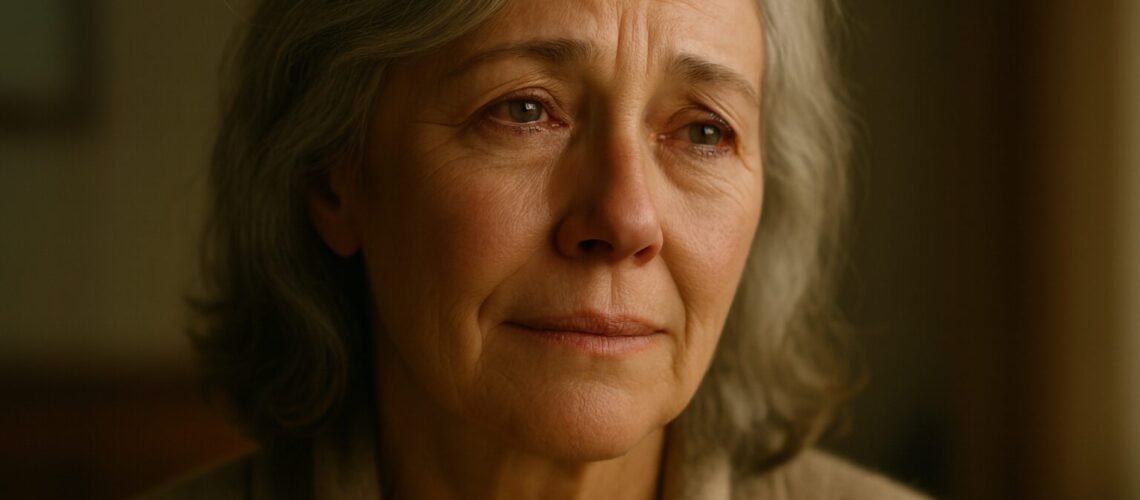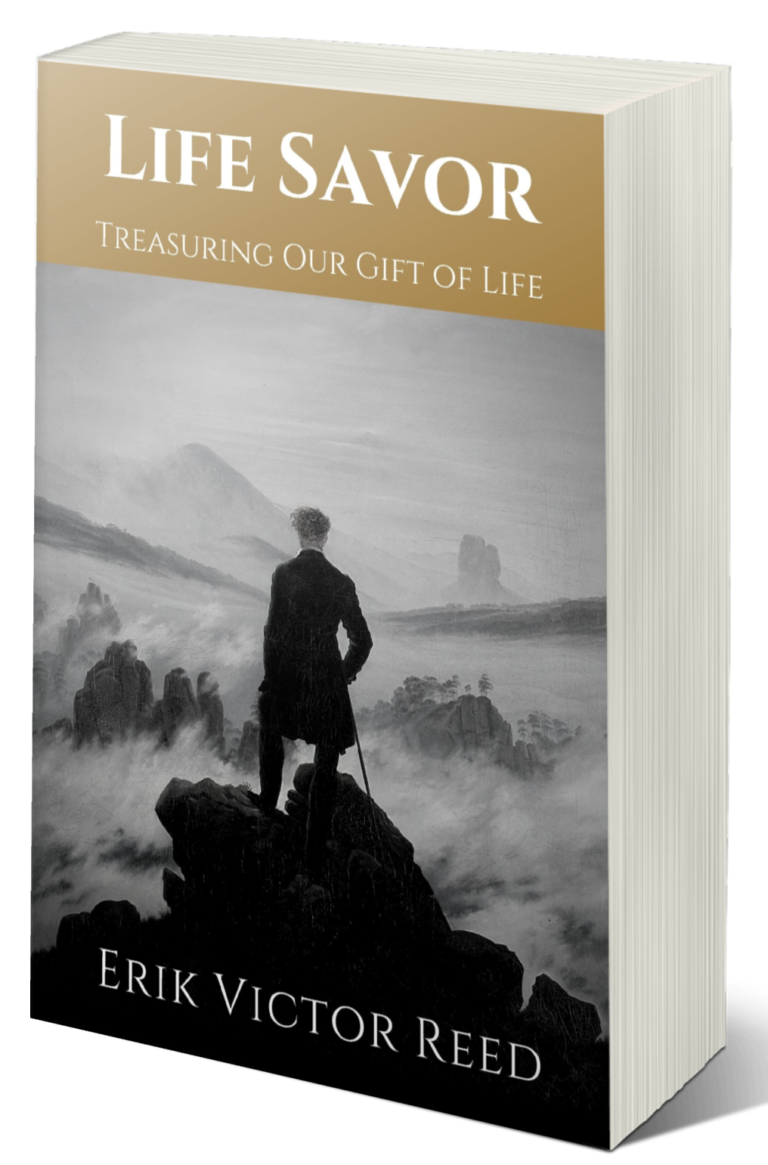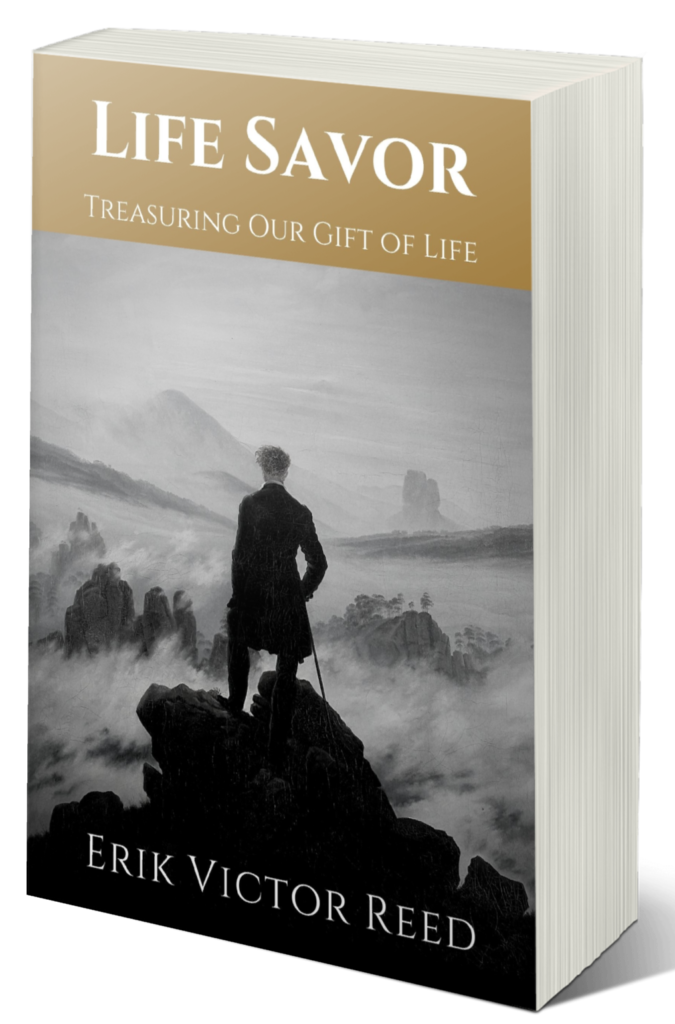Why pain belongs inside the gift of life
When Love Meets Loss
The same heart that swells with joy will eventually ache with grief. We can’t separate the two. To love is to open ourselves to loss, whether through distance, misunderstanding, or death itself.
At first glance, sorrow seems like an intruder — an unwanted thief of joy. But in truth, sorrow is not a violation of life’s gift. It is part of what makes the gift so precious. If love gives us warmth, sorrow, at times, gives it depth.
Why Pain Matters
We live in a culture that often treats sorrow like a problem to be solved. “Cheer up.” “Move on.” “Stay positive.” But pain has its own dignity. It testifies that something mattered. And it testifies that we are staying with it. It testifies that we are not glib, but rather devoted to what truly has meaning for us.
When a friend dies, grief is not weakness. It is a declaration: this person mattered to me, and their absence leaves a hole no one else can fill. When a dream collapses, sorrow announces: this was worth pursuing, and its loss is worth mourning.
Sorrow honors value. It’s the shadow cast by something luminous.
Sorrow and Beauty
Artists have always known this. Some of the most powerful works of art are steeped in sorrow: elegies, requiems, tragic plays, blues songs, the Pieta. They do not repel us. They move us. Why? Because sorrow, when expressed truthfully, awakens our sense of beauty.
There is beauty in the tear shed for a beloved. There is poignancy in the quiet of a funeral procession. There is grace in the arm around a grieving shoulder. Sorrow is not only suffering; it is also tenderness revealed.
Even nature seems to echo this truth. Autumn leaves burn with color just before they fall. Twilight glows with warmth as the day dies. Endings have their own strange splendor.
Grief as Proof of Love
If love is the crown of life, grief is its shadow — and the shadow proves the light.
The depth of our sorrow often measures the depth of our love. To grieve deeply is not to fail at life, but to succeed in having loved well. Far from diminishing life, grief affirms that our years contained something worth missing.
In this sense, sorrow is a kind of victory. It shows that we were vulnerable enough to care, brave enough to attach, human enough to let someone else matter.
The Growth Hidden in Sorrow
Though we would never wish for it, sorrow often enlarges us.
- It softens judgment, teaching compassion for others who suffer.
- It deepens gratitude, making us aware of how fragile and precious joy is.
- It sharpens our priorities, showing us what truly matters when the superficial has been stripped away.
In mourning, we sometimes discover resilience we didn’t know we had. We find that the human spirit can bend without breaking, and that even in darkness, some light remains.
Sorrow and Meaning
Viktor Frankl observed that meaning can transform suffering. When we understand sorrow not as random cruelty but as the cost of caring, it becomes bearable — not pleasant, but purposeful.
To live without sorrow would mean to live without love, without hope, without risk. That would not be mere safety. That would be emptiness. Meaning arises precisely because we allow ourselves to be touched deeply by life, even when it wounds us.
The Gathering of Grief
Picture a funeral. Friends and family gather. Some stand in silence, some cry, some laugh softly as they tell stories. Amid the grief, there is also connection: hands clasped, shoulders leaned upon, meals shared in remembrance.
This scene repeats itself across centuries and cultures. The clothing changes, the prayers differ, but the human core remains: grief expressed in community, sorrow woven with gratitude.
It is dignified, not because it is painless, but because it reveals our humanity at its most tender. At its most vulnerable. There is unmasked truth in that vulnerability; and there is profound beauty in such truth.
Living with Sorrow
So how do we honor sorrow without being crushed by it?
- Allow it. Give yourself permission to grieve. To feel sorrow is not failure; it is fidelity to what mattered.
- Share it. Let others witness your pain. Sorrow, like love, grows lighter when carried together.
- Learn from it. Ask what your sorrow reveals about your values. Often it points directly to what you cherish most.
These practices don’t erase pain, but they dignify it. They turn sorrow from an enemy into a companion on the road.
Closing Thought
Sorrow is not life’s opposite. It is life’s confirmation. It reminds us that we have lived, cared, and loved.
To deny sorrow would be to deny the very things that make life worth living. Better to carry it with dignity — to let it deepen our compassion, heighten our gratitude, and remind us that our hearts were brave enough to beat in rhythm with another’s.
Life’s gift is not only joy. It is the full range: love and loss, laughter and tears. And when sorrow comes, it is not proof that life has betrayed us. It is proof that life has touched us.
For more like this, visit the broader project at life-savor.com, or explore the Life Savor book itself.
To learn more about Life Savor’s philosophy,
read Life Savor: Treasuring Our Gift of Life by Erik Victor Reed.








